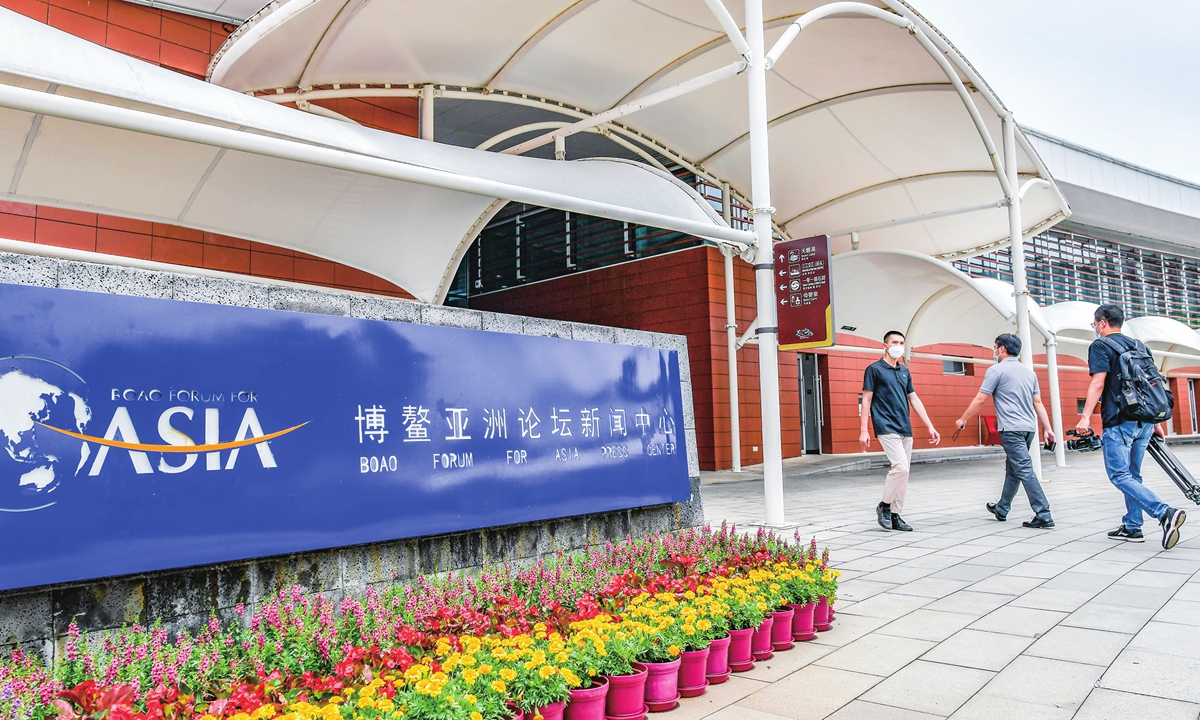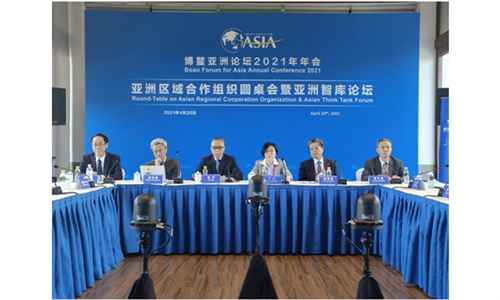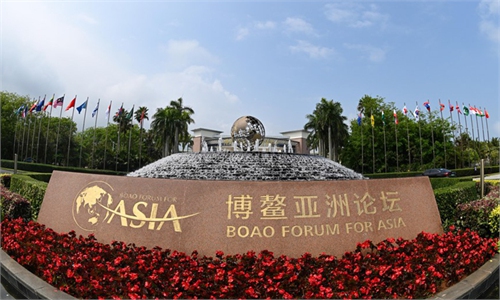
Photo: cnsphoto
This year's annual conference of the Boao Forum for Asia (BFA) kicked off on Wednesday in Boao, South China's Hainan Province, where political and business leaders from Asia and beyond gather to discuss the post-pandemic development agenda for Asia and the world. This is a crucially important opportunity for regional countries to reaffirm commitment to peaceful development and win-win cooperation, as the US and some of its allies are creating growing geopolitical and economic risks in the region.Currently, the Russia-Ukraine conflict, the skyrocketing inflation, the US Fed's monetary policy and other factors all pose serious risks to the economic growth of emerging economies in Asia.
Meanwhile, the deteriorating geopolitical environment has had negative impacts on regional cooperation. In particular, the US' strategic containment of China has already dealt a blow to industrial chains in Asia, casting the region's development into greater uncertainty.
Asia is the world's most dynamic and complex region where various interests and contradictions are intertwined. For the region to resolve complicated geopolitical and economic issues and pave a path of development and cooperation, the key lies in whether Asian countries can magnify positive, constructive elements to prevent the brewing of negative factors.
Looking at how the Russia-Ukraine conflict has brought profound chaos in Europe and beyond, the only way forward for Asia is peaceful development. There is a growing consensus among many Asian countries that the region's development cannot follow the path of Europe to fall into the trap and structural conflicts of the so-called security threats hyped by Washington and some of its allies.
Asia needs to find a development model that can meet the needs of peace, cooperation, and win-win results. To find such a path, it is necessary for the region to get rid of the influences of external forces that intend to make use of the region's existing, historical conflicts and security issues to create tensions.
It is no secret that the US never gets tired of instigating misunderstanding, confrontation and insecurity in Asia, with the aim of dragging the region down to the same path as Europe for the purpose of its strategic interests - profiteering from conflicts and chaos. Asian countries must keep vigilant against such malicious geopolitical gambits.
Over the past several decades, the development fates of Asian countries have never been more closely linked, with such mechanisms as the Conference on Interaction and Confidence Building Measures in Asia and the Shanghai Cooperation Organization serving as beneficial attempts to safeguard regional security and stability.
On the trade front, Asian countries have also been steadily promoting regional integration, with various multilateral trade deals, including the Regional Comprehensive Economic Partnership, or the RCEP. The constant improvement of these mechanisms provides a stable environment for the economic development of Asian industrial chains and lays an important foundation for the stable development of the whole region.
Benefiting from the general environment of peaceful development, Asian countries should share their responsibility of vigorously promoting and maintaining regional stability. Therefore, it is hoped that at the BFA in Hainan, all parties can once again build consensus when it comes to strengthening regional cooperation and tackling challenges together.
China, as the biggest economy in the region, has become a leading voice in promoting joint efforts to avert geopolitical risks and expand shared interests in Asia. It has been actively contributing to regional economic and trade integration through concrete actions to further open up its massive market to businesses and products from Asia and around the world. China is also a fierce defender of free trade and multilateralism, and in the face of the anti-globalization and pandemic headwinds, Asian nations should join hands with China to secure a bright future for Asia.


